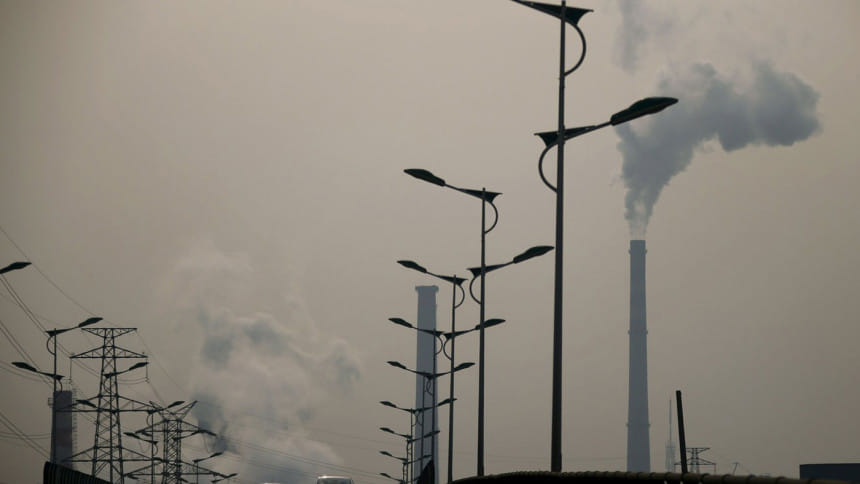Four lessons from Covid-19 pandemic for tackling climate change

The global Covid-19 pandemic is now just over half a year old and arguably still in its early stages. However, there are already a few key lessons that are emerging when evaluating the responses of different countries to this public health emergency, which are relevant for tackling the much longer-term and much bigger emergency of climate change.
The first lesson is that global problems cannot be kept out by national boundaries even if leaders wish to do so. Whether it is the virus or climate change impacts, they will hit every country in every continent regardless of how rich or poor it is. The corollary to this lesson is, the wealth of a country is a very poor indicator of how successfully it can tackle the problem, as it is evident from the Covid-19 situation in the world's wealthiest country right now.
The second lesson is that the actions of leaders of countries, as well as provinces within countries and even individual cities, made a great deal of difference on the number of excess deaths due to the coronavirus. Those leaders who listened to the experts and took early action—combined with providing sensible and science-led advice to their citizens and enabling (rather than forcing) them to adopt good hygiene, face masks and social distancing—were the ones who managed to keep their respective death rates lower than others. This lesson is useful when it comes to tackling the climate change impacts in the coming years. Our leaders at all levels must listen to the climate scientists and base their actions on the best available science going forward.
This is not to say that scientists can make extremely accurate predictions of what will happen, but rather that the scientific process is one of learning from actions and practices and adopting policies in light of what we are able to learn.
Let me illustrate this point with a comparison between weather forecasts and scenarios of future climate change. The former is based on meteorological data about the atmosphere from satellites and other observations, and the short-term predictions over hours and a few days can be very accurate. However, for longer periods running into months, forecasts become more probabilistic than predictive. In the same manner, climate change models which run to the end of the century or even middle of the century are not predictive but rather indicative of what might happen if no action is taken to prevent the worst case scenarios. Hence the purpose of the model is to identify what can be done now so that the worst case scenarios can be avoided.
The Intergovernmental Panel on Climate Change (IPCC) is the global scientific body that assesses the outputs from various climate change models around the world and provides the best advice for global leaders on how to avoid the worst case scenarios. It is extremely important that the leaders of each and every country understand that advice and act upon it going forward.
A third set of important lessons emerging from the Covid-19 pandemic relate to the economic consequences of the public health and lockdown measures and also the economic recovery policies and investments that countries are now putting into place. The greatest opportunity here is for the countries to take a good look at what they were doing wrong in the past and how to do better in the future. This is most relevant when it comes to evaluating our overdependence on fossils fuels like coal, petroleum and even natural gas to meet almost all our energy needs (from industrial to domestic and transport and agriculture). Here, we are seeing a possibility of shifting our future investment in a new direction that is both cleaner and greener, with a greater focus on investing in renewable energy sources such as solar and wind. Unfortunately, the power of the fossil fuel industries and the politicians who they support is working towards returning us to the bad, old ways rather than trying to move us forward to a better, greener and cleaner world.
The last lesson is the synergies and win-win nature of tackling both the climate change emergency and the public health emergency related to air pollution—caused from combustion of fossil fuels which makes cities like Dhaka and Delhi extremely polluted and has conclusively been shown to affect human health and also the death rates of the population. Hence, we can certainly improve the health of our citizens and reduce the emission of greenhouse gases by undertaking an immediate programme to reduce dependence on petroleum for transport and other industrial uses. This new direction is being taken in some countries which we should learn from.
Even though we are still in the early phases of the Covid-19 pandemic and the climate change emergency is going to get worse in the medium term and only improve in the longer term if the world's leaders take appropriate decisions in time, it is already abundantly clear that taking early decisions based on best available science will save millions of lives in the years to come.
Saleemul Huq is Director at the International Centre for Climate Change and Development, Independent University Bangladesh.

 For all latest news, follow The Daily Star's Google News channel.
For all latest news, follow The Daily Star's Google News channel. 



Comments